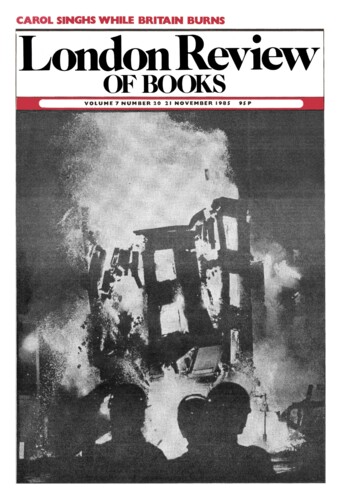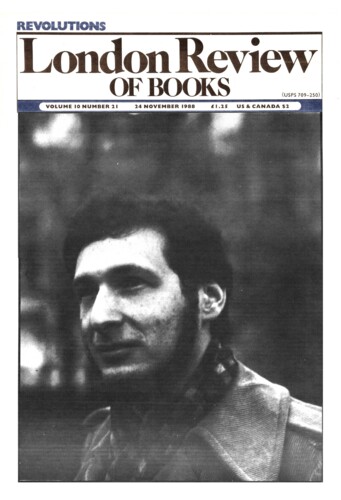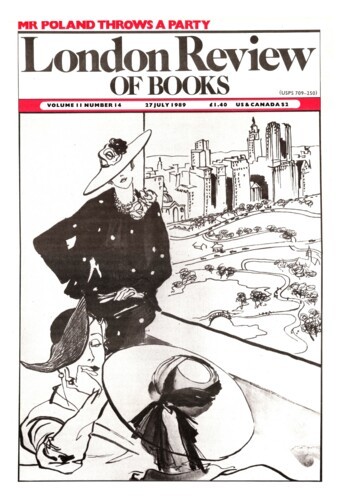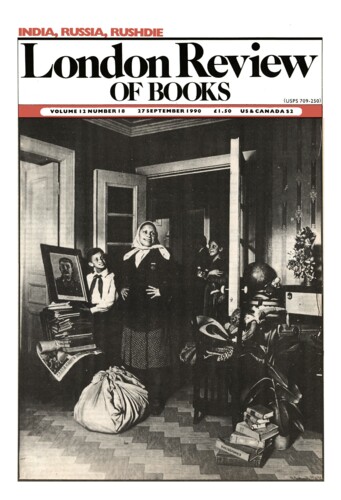It will prove very hard for Poland to find a way out of Communism, though not as painful, one hopes, as finding its way into it. But what we are now witnessing is the end: there is probably no way back, not even by armed force. This is a risky thing to write after the imposition of martial law in Poland in December 1981 and the recent brutalities of Tiananmen Square: total control both of the military and of all forms of political activity obviously makes possible an almost limitless exercise of power. But martial law, as Norman Davies has pointed out in The Heart of Europe, was introduced by the ‘core of the Communist establishment’, the Army leaders, because every other source of authority had been exhausted. They acted, as Warsaw Pact forces manoeuvred on Poland’s borders and off its coasts, to preserve Soviet power, secure in the knowledge that their action would be supported by that power. They could not be certain of that now. There is no longer a Communist backstop. If the Army is to be used again, it is unlikely to be by the present authorities.
It will prove very hard for Poland to find a way out of Communism, though not as painful, one hopes, as finding its way into it. But what we are now witnessing is the end: there is probably no...





